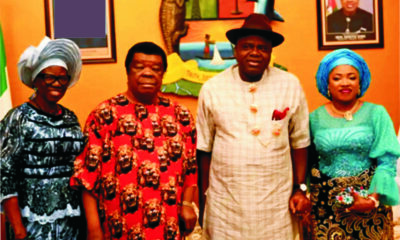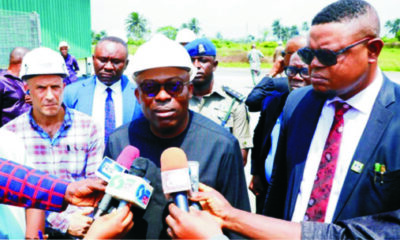Featured
PANDEF, NDD Reject 12 Provisions In PIB Insist On 10% OPEX For Trust Fund

The Pan-Niger Delta Forum (PANDEF) and the Niger Delta Dialogue (NDD) have rejected no fewer than 12 key provisions in the Petroleum Host and Impacted Communities Development Bill (PHICDB).
They warned that the key provisions in the bill must be redrafted, rephrased and restructured to accommodate the interests of the impoverished and neglected people of the oil and gas host and impacted communities in the Niger Delta, or the peace and appropriate development sought by the bill would elude both the region and the country as a whole.
The critical Niger Delta groups expressed their rejection of the vital provisions of the bill during the NDD’s Strategic Communication and Advocacy Training session for major stakeholders in PANDEF, NDD and the various Policy Advocacy Committees (PACs) in Port Harcourt, recently.
The Tide reports that the PHICDB, an integral part of the Petroleum Industry Bill (PIB) currently receiving legislative consideration at the two chambers of the National Assembly, “seeks to foster sustainable shared prosperity amongst host and impacted communities; provide direct social and economic benefits from petroleum operations to host and impacted communities; enhance peaceful and harmonious coexistence between settlers and host and impacted communities; as well as, create a framework to support host and impacted communities’ development” process.
The PIB, which has been sleeping in the drawers of the federal lawmakers for more than 18 years, is the oldest pieces of legislation yet to receive the majority consent of National Assembly members in Nigeria’s democratic history.
Among the provisions is the Interpretations Section, which they claim, was vague in the use of words and terms “host and impacted communities” to describe oil-bearing communities in the region, insisted that the lawmakers must clearly identify communities by the specific roles they play in the hydrocarbons production chain.
They “recommended that host communities should be clearly defined as villages where oil wells and flow stations are situated. Impacted communities should be defined as villages where oil installations such as pipelines run through as well as villages located within a three kilometer radius of those where oil wells and gas plants or flaring points are domiciled”, in the final bill to be passed.
The stakeholders condemned the observed silence of the bill on how the clusters should be formed and the trust fund shared, and recommended that clusters should be carved out on the basis of state Houses of Assembly constituencies for ease of coordination and mobilisation.
They also condemned the vague use of the term ‘Settlor(s)’ in Part 2, Section 2, Subsection 1 and 2 of the draft bill, and insisted that each International Oil Company (IOC) must be deemed as a Settlor(s) and have its own trust fund incorporated in the clusters to avoid confusion in funding and projects’ implementation.
The stakeholders wondered why “sabotage spill” was not clearly defined but its consequences were highlighted in the draft bill, and “recommended that there should be no clause compelling the Settlor(s) not to pay what is agreed until they stop operation by virtue of licence expiration or cessation of operational existence in the host and impacted communities”.
They further condemned the observed silence in the sharing formula of the accruing fund from the “Settlor(s)” between host and impacted communities, particularly given that there are more impacted than host communities in available oil industry records, and “recommended that a sharing formula of 70 per cent for host communities and 30 per cent for impacted communities” should be spelt out in the bill, when passed for the President’s assent.
The stakeholders also expressed worry that Part 3, Section 9, Subsection 1 and 2 of the draft bill rests the creation and determination of the membership of the Board of Trustees (BoTs) for the trust funds on the IOCs, warning that this may undermine the peace effort in the region, and further undercut the interests of oil-bearing communities.
They, therefore, “recommended that the BOTs should be a five-member body with a representative each from Host Communities, Impacted Communities, Federal Government, and two representatives for the Settlor(s). Each stakeholder should determine who their representatives will be. Representatives of Host, Impacted communities and the Settlor(s) must be indigenes of the cluster area.”
The PACs berated the Presidency for not giving details on the actual composition of the day-to-day management committees of the cluster trusts as enunciated in Section 14 of the proposed bill, and “recommended a nine-man committee with two representatives each nominated by Host and Impacted communities; three representatives of Settlor(s); and one representative each from state and federal governments, respectively”.
They condemned the provision of only 2.5 per cent of the actual operating expenditure (AOPEX), against 10 per cent in the previous bill submitted to the 8th NASS, for the smooth running of the recurrent and capital expenditures of the cluster trusts, and “recommended a minimum of 10 per cent of the operating expenditure (OPEX) to fund the cluster trusts and 5 per cent equity participation in the operations of the IOCs for both Host and Impacted communities”, in the final copy of the bill.
The stakeholders also picked holes in Section 11, which splits the utilization of the Endowment Fund to 70 per cent for capital expenditure; 20 per cent for the Reserve Fund; and 10 per cent for the Settlor(s) special projects, and “recommended that 75 per cent be reserved for capital expenditure; 20 per cent for the Reserve Fund; and 5 per cent for logistical and recurrent expenditures off the BoTs, management committees and the advisory committees”.
They expressed worry that the Presidency failed to specify how the operating expenditures of the Settlor(s) would be verified to ascertain the accruing funds to the cluster trusts, and “recommended that the OPEX, which is usually audited from the previous year’s spend, should be used to factor the accruing fund for the current year, e.g. AOPEX for Year A, audited in Year B, and used to calculate budget for Year C”.
The stakeholders blasted the Presidency for including in Section 22 that the Settlors’ OPEX paid into the trust fund shall be subject to Petroleum Income Tax (PIT) and Companies Income Tax (CIT) deductibles, and recommended that the Endowment Trust Fund should be excluded from any form of taxation, as the bill, in its original state would limit the amount of money available for development projects and programmes in the region.
The PACs queried Section 5 of the present bill, which does not give specific punishments for under-payment, late payment or non-payment of agreed money into the cluster trust fund as at when due, and recommended that failure by the Settlor(s) to pay the required percentage of the OPEX by first day of the year, should attract immediate suspension of operating licence; failure to do so by first day of second month should attract immediate withdrawal of operating licence; while before a Settlor gets another approval to operate in the same Oil Mining Lease (OML) or Oil Prospecting Licence (OPL), two per cent of the entire money owed the cluster trust fund must be paid as penalty in addition to the full payment of the entire balance in outstanding debt to the cluster communities.
The stakeholders lamented the lack of sufficient clarity on timeframes for incorporation of cluster trusts for Host and Impacted communities and the failure to stipulate penalties for reneging on implementation of agreed projects and programmes by the Settlor(s) as contained in Section 3 of the bill before the NASS, and recommended that deadlines be specified for the incorporation of cluster trust funds and inauguration of management committees and BoTs, just as the bill must specify duration not exceeding 24 months before the completion and commissioning of physical infrastructure projects in the affected communities, and six months for execution of human capacity development programmes such as economic empowerment schemes, scholarship initiatives, skills acquisition and entrepreneurship opportunities, among others.
All the parties warned that failure to accommodate the recommendations of the PACs in the bill, which the NASS has promised to pass into law by February, 2021, would be devastating for the people, and may trigger another round of tension and agitations in the region.
By: Susan Serekara-Nwikhana
Featured
Rivers’ll Be Known For Peace, Not Crisis -Fubara
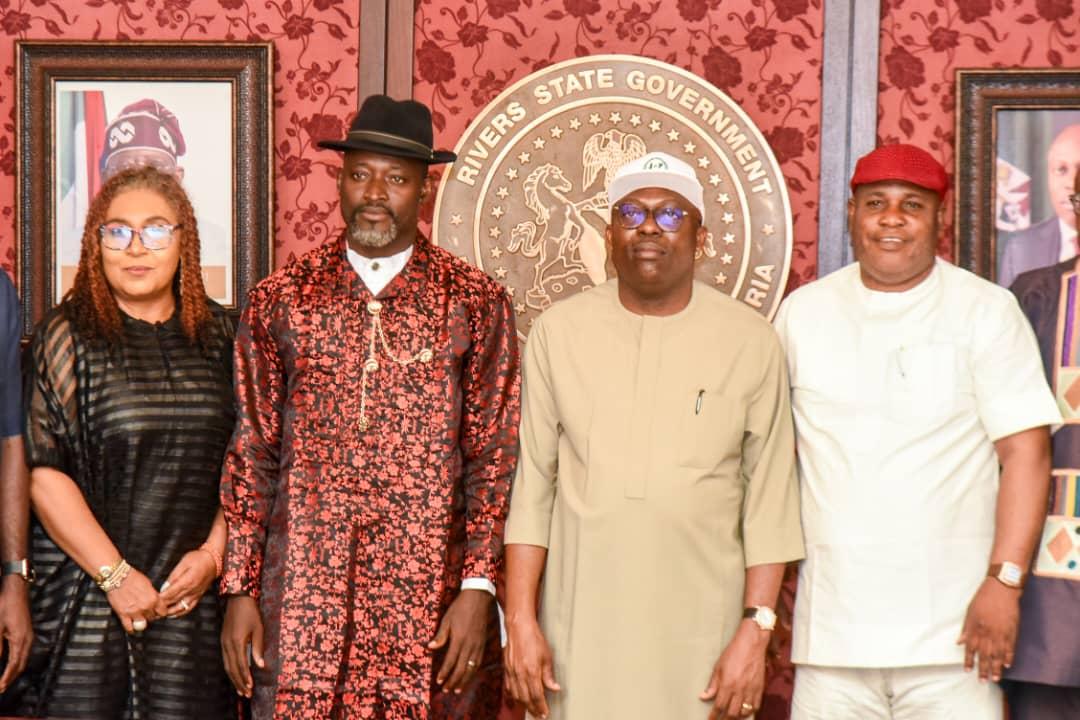
Rivers State Governor, Sir Siminalayi Fubara, has said that peace has prevailed because he draws strength from God to resist insults and tantrums thrown at him while frustrating attempts by some disgruntled persons who wanted to plunge the State into unending crisis.
The Governor also said that because he has anchored his Government on promoting peace, the enabling atmosphere has been provided for investments and sustainable development to flourish.
Governor Fubara made the assertion when he received a delegation of members of the Bishops and Gospel Ministers’ Association International Incorporated, Rivers State Chapter, at Government House in Port Harcourt, yesterday.
Represented by the Head of Rivers State Civil Service, Dr George Nwaeke, Governor Fubara said while most people took his meekness for weakness, his stance on peace has unarguably enhanced harmonious atmosphere of concord as residents sleep with their two eyes closed, and investors and shareholders are happy with the returns on investment.
He said, “Before, what they hear of Rivers State is that they are fighting, and some genuine investors will not come. Some people even ask you: How are you coping in Rivers State?
“But now”, he asserted: “The Governor has brought about a lot of changes in the State. One of the most important things is that he has changed the negative narrative. It is no longer Rivers of blood. It is now Rivers of peace.
“We are enjoying our lives here. Why? Because there is a change in the narrative. We have peace. The Governor is, as much as possible, absorbing any level of insult at him only for one purpose: that Rivers State may have peace; that we may grow; that this state will experience genuine development.”
Governor Fubara urged them, as members of the Christian family in the State, to continue to pray for the State and the Government so that the enemies of the State will be put to greater shame.
“This peace is what I want you to embrace. Go and continue to pray, because when the sower of the seed went and sowed, the enemy went in the night and sowed tares inside there. But the Governor is sowing peace.
“When I listened to the leader of the team, His Grace Eddy Ogbonda, he said you came all the way from Eleme Junction, and stopped at major junctions, and you uttered prayers for the peace of Rivers State.”
He also said: “I, hereby want to thank you for identifying with the Governor at a time like this. At a time when it looks as if someone wants the Governor’s peace posture misunderstood as weakness.
“When someone has the strength to fight back, but refuses to fight back. That is a bigger strength; that power of restrain does not just come, it can only come from God.
“You cannot give peace, if you do not have peace within you. The Governor is not interested in any form of trouble or violence. What he is interested in is known, and it is: let there be peace in Rivers State,” he said.
In his address, leader of the group, Archbishop Eddy Ogbonda, said they had observed a week-long intensive prayers that culminated into a peace rally, which brought them to Government House, and assured the Governor that God will continue to give him victory over his adversaries while preserving Rivers State.
“It is Rivers State Prophetic Prayer Convocation and Rally 2024 with the theme: ‘Peace be still’. Of a truth, everyone of us understands that we live in a time when we need peace much more than any other thing.
“Rivers State needs peace. Everyone as individuals need peace. The country needs peace, and the world at large needs peace. So, we are here to do a peace march. We pray that God will command His peace to reign in Rivers State,” he said.
Featured
Hoteliers, School Owners Charging In Dollars Risk Arrest -EFCC
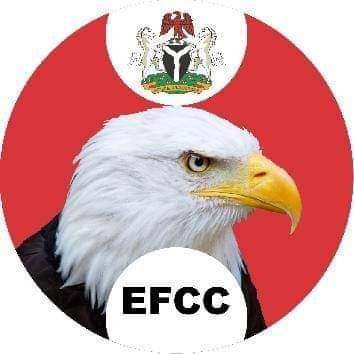
The Economic and Financial Crimes Commission (EFCC) has stated that hotels, schools, and other establishments that accept payments in dollars from their customers are at risk of facing arrest.
The Chairman of EFCC, Ola Olukoyede, said this in the agency’s publication called EFCC Alert on Monday, adding that action would be taken against individuals involved in the dollarisation of the economy.
According to him, the exception is if foreigners come in to transact business and the only means of transacting is their credit card and dollar but to charge local customers in dollars or other foreign currencies would no longer be allowed.
He said charging local activities and customers in dollars is against Nigeria’s constitution.
The EFCC chairman said, “Schools that charge Nigerians in dollar, supermarkets that trade in dollar, estate developers that sell their property in dollar, hotels that are invoicing in dollar, we are coming after you and we have made arrests in that area.
“Yes, if foreigners are coming in and the only means of transacting is their credit card, and dollar, why not? You will get that.
“But document it properly as against selling things within the system, local economy and you will be using dollar as the medium of exchange, it is illegal.
“Our law does not allow for that. And we have also affected some arrests.”
Featured
Eid-El-Fitr: Fubara Felicitates Muslims, Calls For Unity, Tolerance
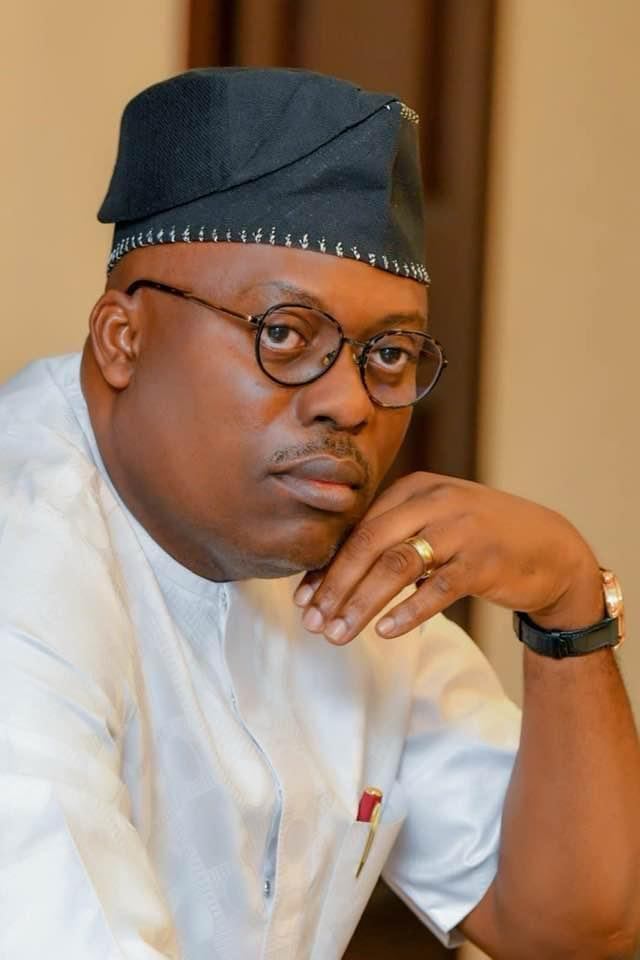
Rivers State Governor, Sir Siminalayi Fubara, has enjoined Muslim faithful to remain steadfast to the lessons learnt during the holy month of Ramadan.
Governor Fubara stated this in his message of felicitations to Muslims as they celebrate the 2024 Eid-el-Fitr Sallah, which marks the end of the one-month Ramadan fasting.
The Governor emphasised the importance for Muslims to also uphold the tenets of Islam by exhibiting the fear of God and showing piety in their daily work.
Governor Fubara said, “We must all continue in the good attributes imbibed during the holy month of Ramadan as directed by God through His Prophet, so as to ensure peace, unity and harmony in the society for a better future.”
While praying that the essence of the festival offers them happiness, peace and prosperity in all aspects of life, Governor Fubara said he recognises and appreciates the critical role that the Muslim community continues to play in the development of Rivers State, and indeed, Nigeria at large.
Governor Fubara charged them to remain unwavering and steadfast in their commitment and positive contributions to advance the development of the State and the country.
“I enjoin you all in the State to remain calm, be patient and continue to do what is right,” the Governor added.
He wished the Muslim faithful in the State and across the country a happy Eid-el-Fitr celebration.
-

 Sports2 days ago
Sports2 days agoCRSG Doubles Subvention For Rovers FC
-

 Maritime3 days ago
Maritime3 days agoWestern Marine Command Customs Gets New Boss
-

 News2 days ago
News2 days agoNDLEA Arrests Three Wanted Kingpins, Seizes 51.90kg Heroin
-
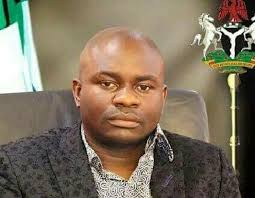
 Politics2 days ago
Politics2 days agoNEC Meeting: PDP’ll Wax Stronger – Farah Dagogo
-
News2 days ago
FG Targets Production Of Locally Made Vehicles By Dec
-

 Sports2 days ago
Sports2 days agoWilkins Backs Rivers Hoopers To Spring Surprises At 2024 BAL
-

 Maritime3 days ago
Maritime3 days agoTinubu, Others To Honour Global Transport Roundtable
-

 News2 days ago
News2 days agoFG To Launch 2,700 CNG Buses, Tricycles Before May 29


